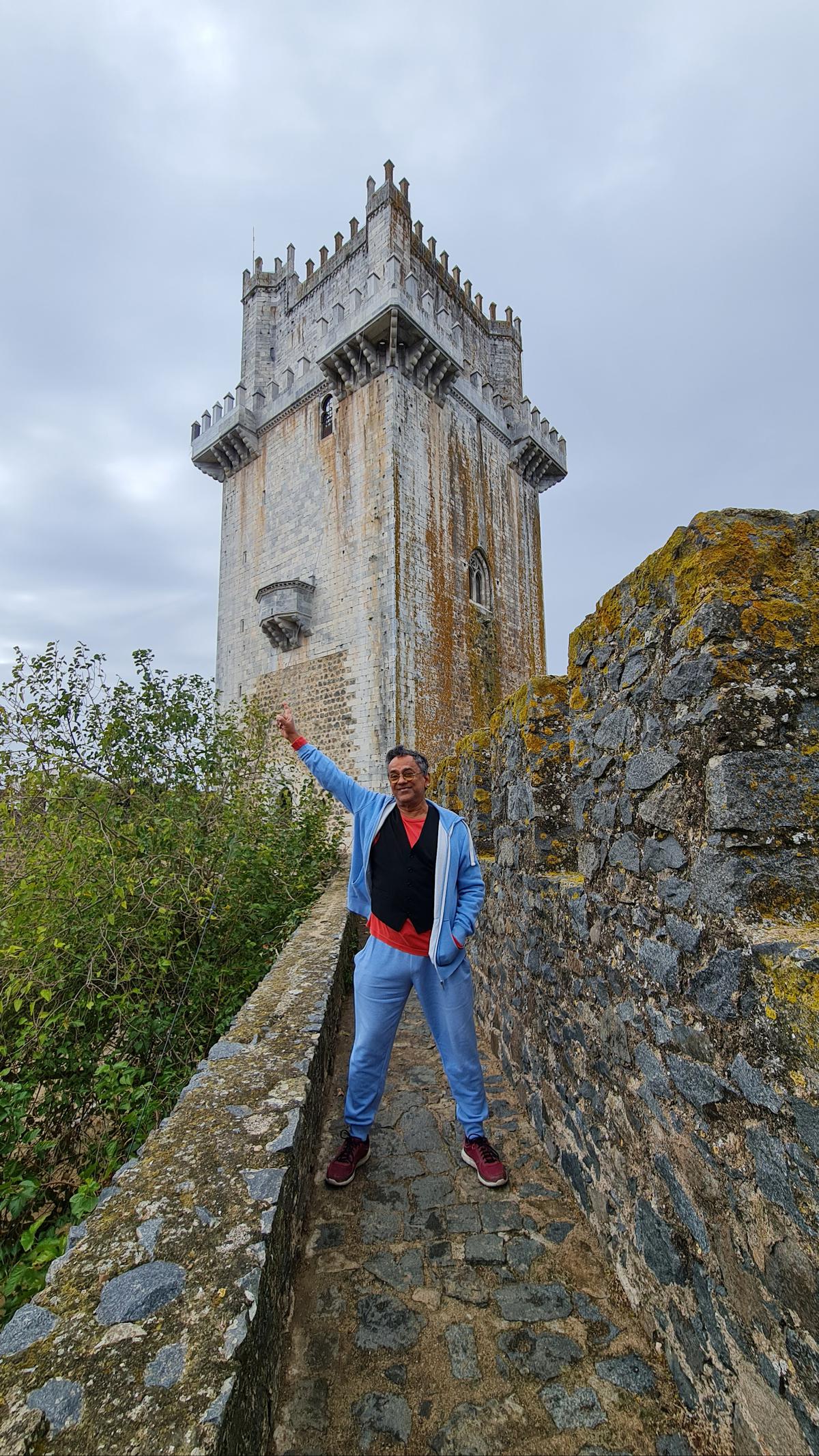‘Fado da Terra Lenta’ has contemporary orchestration with instruments and choral voices not used in the old fado form
‘Fado da Terra Lenta’ has contemporary orchestration with instruments and choral voices not used in the old fado form
Alentejo is a cling-to-the coastline town on the western edge of Portugal, facing the thunderous trade winds that blow through the Atlantic Ocean. It is also the hero of Remo Fernandes’ latest song ‘Fado da Terra Lenta’ (Fado of the slow land), released last weekend on YouTube.
A pioneer of Indian pop music in the 1980s, Remo has had a crowded 68 years — he has been awarded the Padma Shri, been brand ambassador for an international soft drink, performed with members of iconic bands such as Queen and Led Zeppelin, voiced AR Rahman’s popular ‘Humma Humma’ in Mani Ratnam’s Bombay and championed Konkani tunes from his home State Goa — now strums his guitar looking out to the rolling grasslands of Portugal, where he lives part of the year.

Remo Fernandes
| Photo Credit: Special arrangement
“The song is dedicated to the beautiful land, people and cuisine of Alentejo, a place I’ve always loved,” says Remo via email. “When I revisited it, I was inspired to write a fado in its honour, even though it is not the traditional music of the region. But the form worked well for a place that is as slow and ‘sossegado’ as Goa used to be back in the day. The white-washed houses with their blue trim, laid-back and friendly people, the honesty… it is difficult to find all of these in Goa today, but I find them in Alentejo.”
Fado is a happy-to-be-sad kind of music, melancholy running strong through its notes, commanded by the Portuguese and classical guitar. Modern fadistas have taken the fado outside the traditional fado tavern where it was born in the early 18th Century and infused it with happier emotions. When Iberian sailors trundled their cannons eastwards and West in the hope of gold, glory and gospel, fado’s longing strains became part of the cultures of Portuguese colonies such as Goa and Brazil.
“This is the second Portuguese fado I’ve written and composed. I did it this August in Alentejo and recorded it in Porto. In October, I returned to Alentejo and shot the video. The first was ‘Fado Goa’ that features in my 1984 album Goan Crazy,” says Remo.
Why the three-decade wait? “One never knows when inspiration will strike you to write. One night the first two lines just came to my mind after dinner, and I picked up my ukulele and strummed and sang them. From the other room, Zenia [his partner] made up and sang more lyrics. So did my brother-in-law Carmelino from the front yard. And then my sister Belinda who was watching a film in the sitting room. It was a moment of fun and laughter, all of us making up the most atrocious lyrics we could think of. But I recorded the basic idea on my phone. It took me three days to write and compose the finished version,” says Remo.
For the song, Remo has used the fado corrido (the running fado), a faster and livelier form, set to the lightness-of-being of a ukulele, called a cavaquinho locally. “I grew up listening to fados and other popular Portuguese, Brazilian and Latin music, besides, of course, Goan, much before I heard English music, rock and pop. In Goa, many of us are stuck in pre-1961, and only know the fado and other things Portuguese (including the language itself) as they existed before Goa’s liberation. But I haven’t sung this fado as a traditional fadista but as a soft slow ballad,” says Remo, adding that the fado too is being sung in more natural ways especially in Portugal.
When COVID-19 first struck, Remo sang ‘When will you learn, man?” with an urgency on how to tackle the pandemic but now he seems to earn for a slower, gentler world. Which is why the video for the song (shot by Zenia Costa Pereira) has Remo singing all the voices not within the confines of a fado house but looking out at the rolling landscape of Alentejo. The music is interspersed with black and white photographs of Homburg-hat wearing men and white-washed architectural fragments from the days of the conquistadors — apt when you are singing of longing and love for a way of life that has passed into the pages of a history book.
Stay connected with us on social media platform for instant update click here to join our Twitter, & Facebook
We are now on Telegram. Click here to join our channel (@TechiUpdate) and stay updated with the latest Technology headlines.
For all the latest Life Style News Click Here
For the latest news and updates, follow us on Google News.
